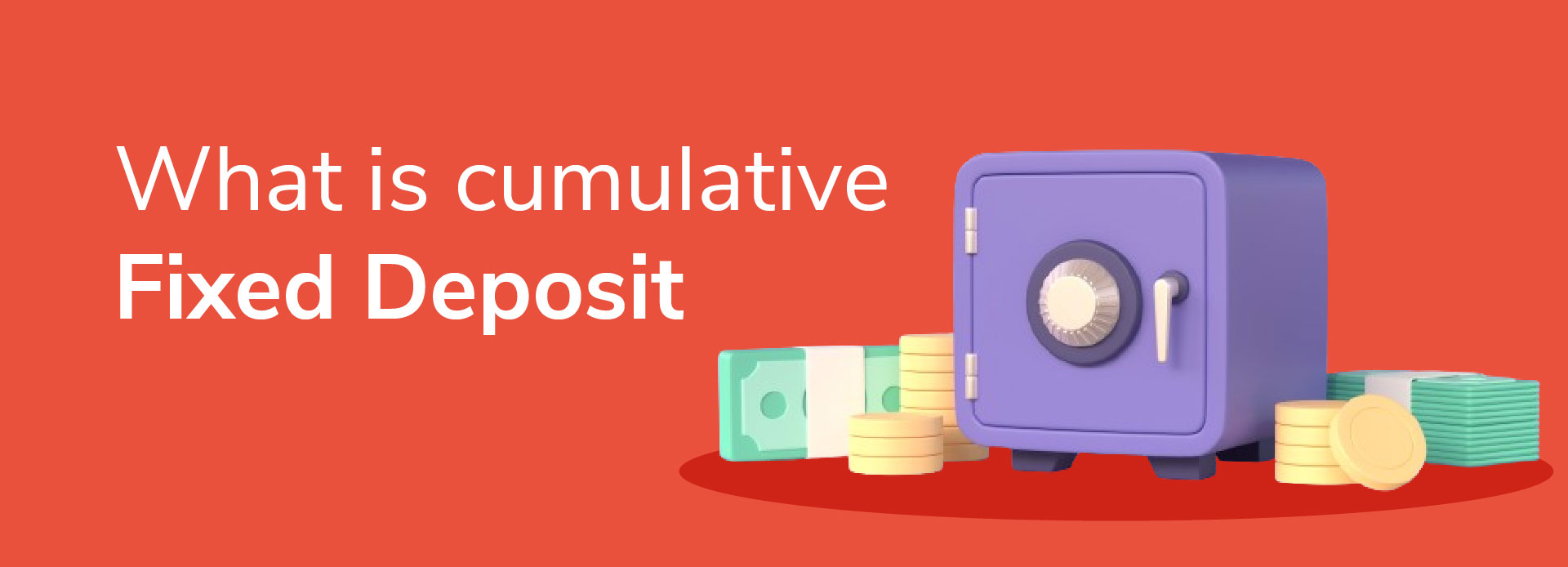
What is a Cumulative Fixed Deposit?
30 January 2024 | By INDIE
Fixed deposits have long been a preferred choice for individuals seeking a secure and steady means of investment. A specific type of fixed deposit that has gained prominence for its unique features and potential of higher returns is the cumulative fixed deposit. Leveraging the compounding effect, a cumulative fixed deposit can be a robust solution if you are looking for a safe and long-term investment offering rapid growth. Understand the meaning of a cumulative fixed deposit, its working, and the benefits it accompanies.
What is a cumulative fixed deposit and how does it work?
A cumulative fixed deposit (cumulative FD) is a term deposit where the interest earned on the principal amount is not paid out periodically but instead gets reinvested along with the principal amount for further tenures. This means that interest is compounded over time, leading to a higher overall yield at the end of the deposit tenure.
A cumulative FD involves the accrual of interest, which is added to the principal at regular intervals. Consequently, the interest for the subsequent periods is calculated on the augmented principal, creating a compounding effect. This compounding feature distinguishes cumulative fixed deposits from conventional fixed deposits.
How is a cumulative FD different from a non-cumulative FD?
The primary difference between cumulative and non-cumulative fixed deposits is the interest payout structure. In a non-cumulative FD, interest is disbursed at regular intervals, providing you with a steady income stream. On the other hand, cumulative FDs do not offer periodic payouts; instead, interest is compounded, thus offering a lump sum payment at the end of the deposit tenure.
The choice between cumulative and non-cumulative fixed deposits depends on your financial goals and cash flow requirements. While non-cumulative FDs suit those seeking regular income, cumulative FDs are apt for those willing to defer their earnings for a potentially higher overall return.
How to maximise your returns with a cumulative FD?
To optimise returns with a cumulative FD, you can consider the following strategies:
1. Tenure selection: Longer tenures often yield higher interest rates. Assess your financial goals and risk tolerance before opting for a specific tenure.
2. Principal amount: A higher principal amount translates to increased interest earnings. Invest a substantial amount that aligns with your financial capacity.
3. Interest rates: Compare offerings from different financial institutions to secure the highest fixed deposit interest rates available in the market.
4. Regular monitoring: Keep track of interest rate movements and economic indicators. Some financial institutions offer the flexibility to switch between cumulative and non-cumulative options during the tenure.
Who should invest in cumulative FDs?
Cumulative fixed deposits cater to investors with a long-term perspective and the willingness to defer income for a higher overall return. This investment avenue is suitable for individuals with a stable financial position, looking to accumulate wealth over time. Risk-averse investors, such as retirees or those with a fixed income, may find the security and compounding benefits of cumulative FDs particularly appealing.
Conclusion
A cumulative fixed deposit offers a unique approach to wealth accumulation with safety and reliability. Its compounding nature sets it apart from non-cumulative fixed deposits, providing investors with the potential for higher returns over an extended period.
To maximise the benefits, choose a platform that offers the highest fixed deposit interest rates such as Indie by IndusInd Bank which offers FD interest rates of up to 7.5% p.a., one of the highest in the industry. With Indie, you can seamlessly open a fixed deposit account within minutes and start investing with amounts as low as ₹1,000. The flexible tenures and easy linking with savings account makes it even more convenient to invest in FDs.




